Space news stories
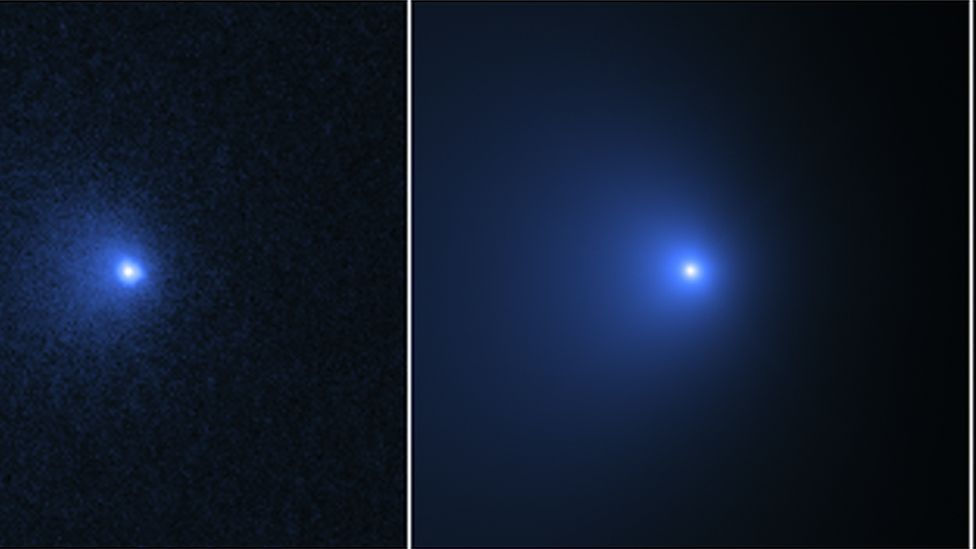
Nasa’s Hubble telescope has determined the comet’s icy nucleus has a mass of about 500 trillion tonnes and is 85 miles (137km) wide – larger than the US state of Rhode Island.

A new model of the very early universe proposes that the graviton, the quantum mechanical force carrier of gravity, flooded the cosmos with dark matter before normal matter even had a chance to get started.
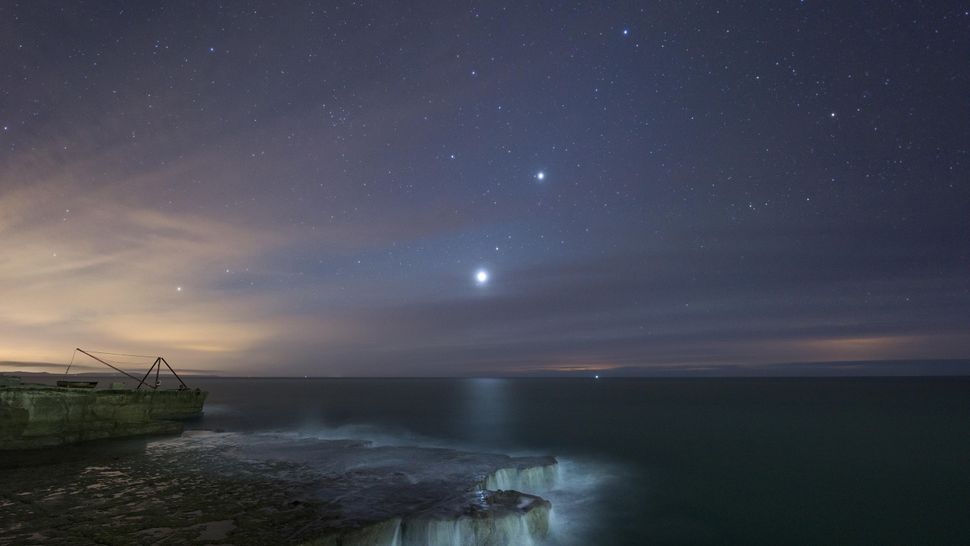
Five planets, visible to the naked eye, are poised to line up and march across the sky this summer in an unusual alignment that will be graced by the light of the moon.
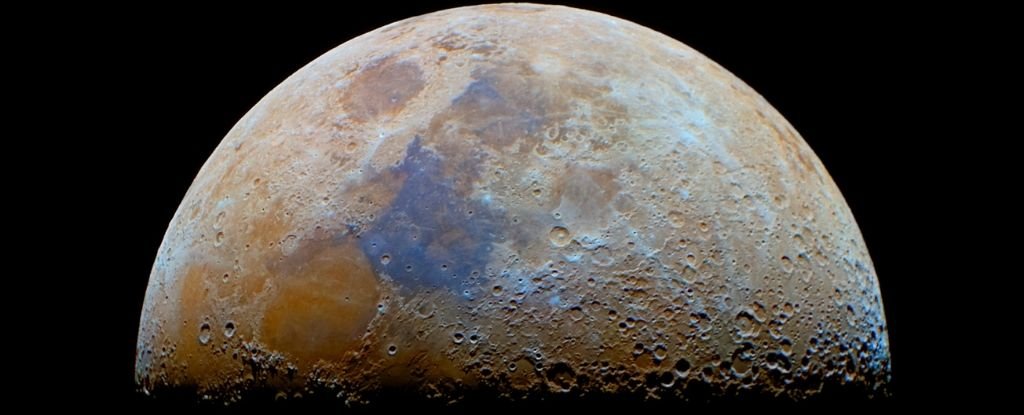
No matter where you’re standing on Earth, you can only ever see one face of the Moon. Its other cheek is perennially turned away from our planet, and this far side is much more pockmarked with craters than the one facing us.
The super-distant galaxy could have either a supermassive black hole or a nursery of incredibly quick-forming stars.
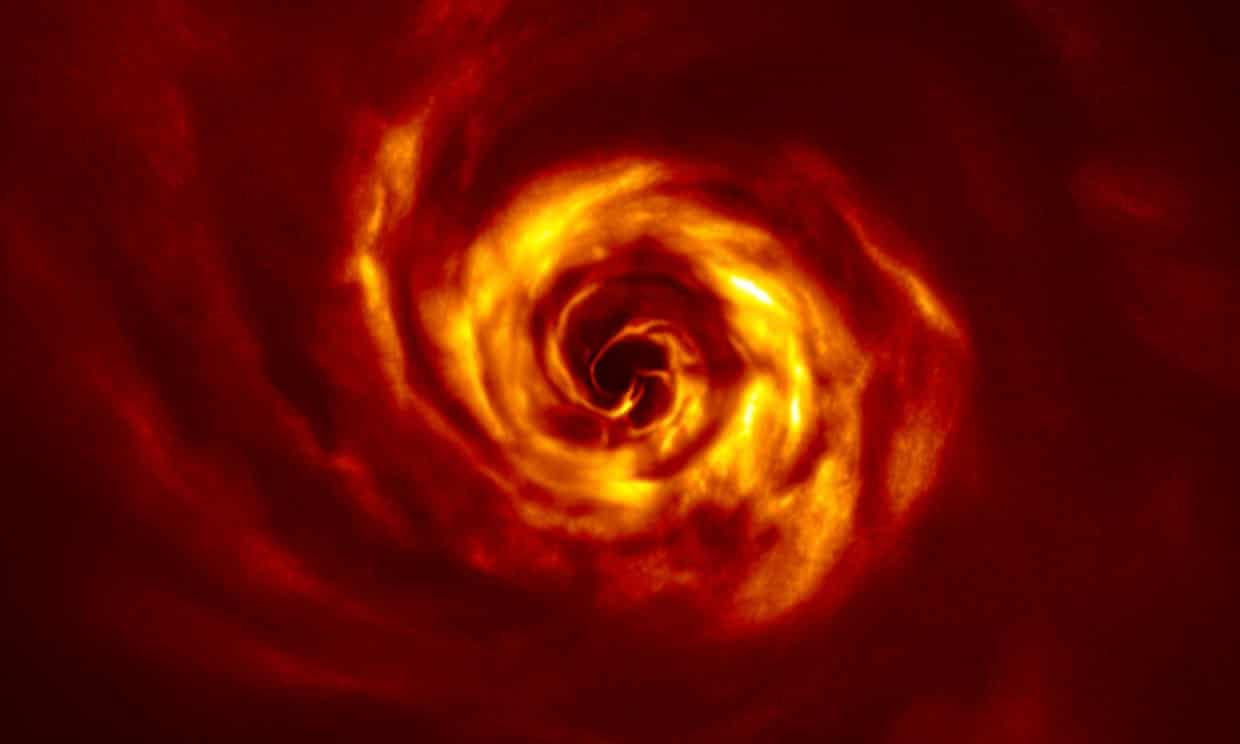
Scientists have observed an enormous planet about nine times the mass of Jupiter at a remarkably early stage of formation – describing it as still in the womb – in a discovery that challenges the current understanding of planetary formation.
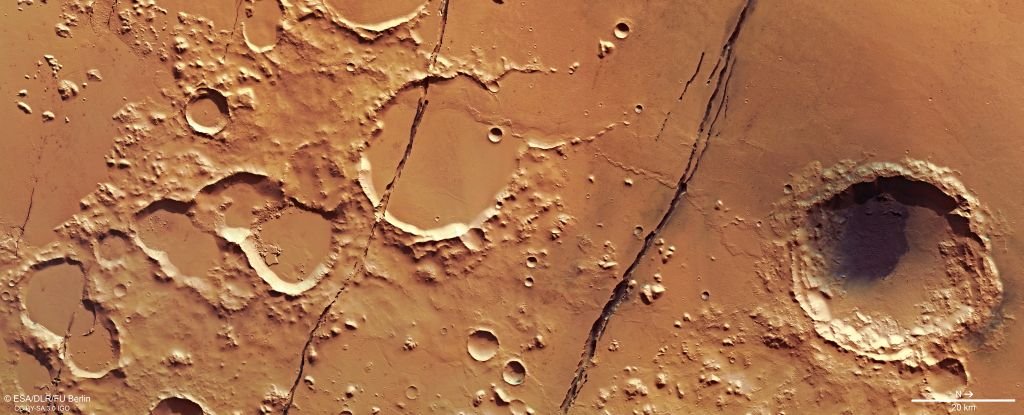
It turns out that Mars is rumblier than we knew. New techniques have revealed previously undetected quakes beneath the Martian surface – and, scientists say, the best explanation so far is ongoing volcanic activity.
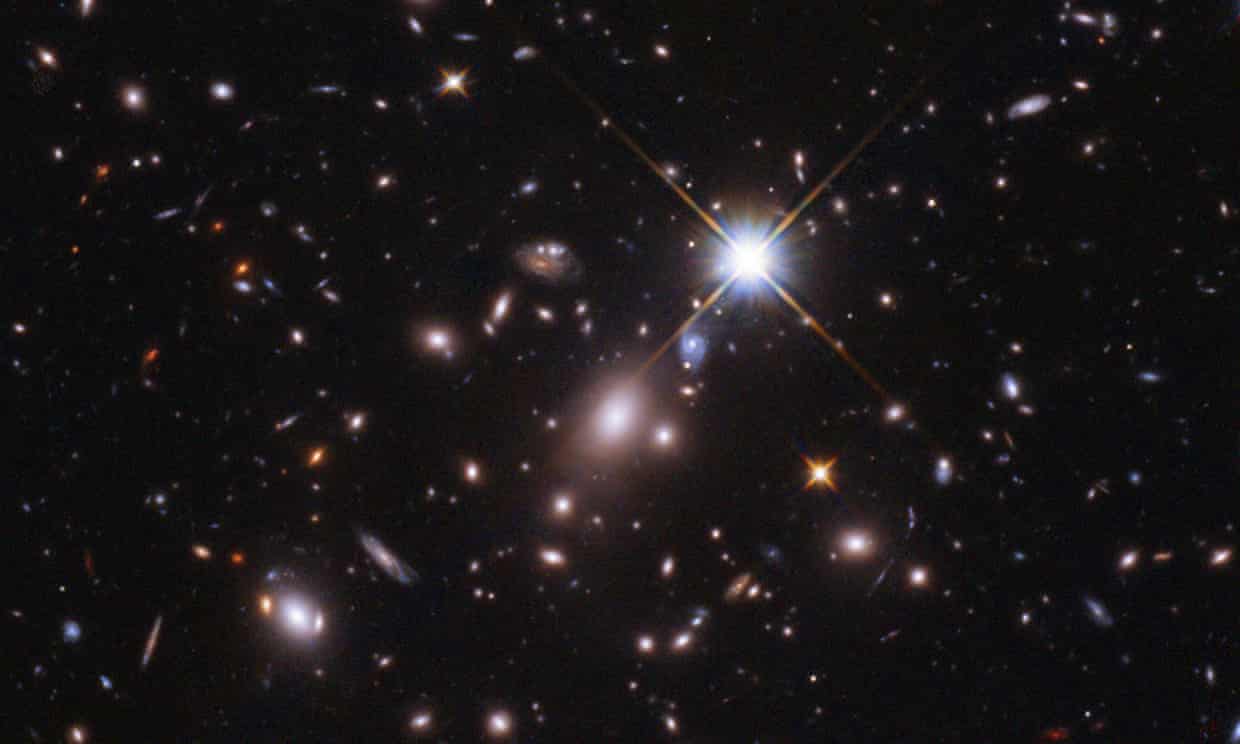
The most distant star ever seen has been captured by the Hubble space telescope in images that appear to give a remarkable glimpse into the ancient universe.
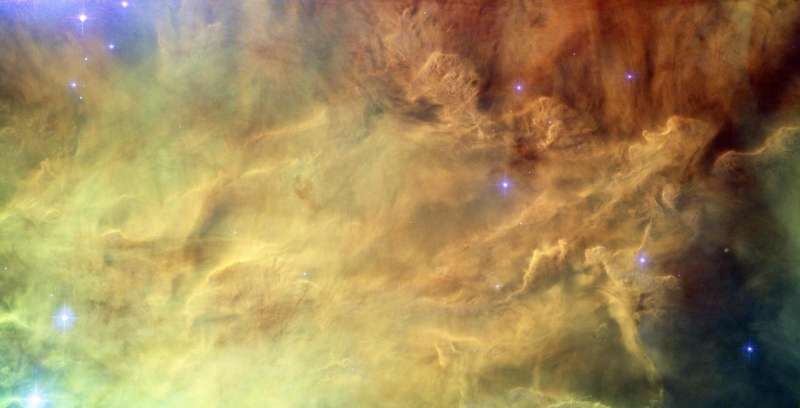
Helium-3, a rare isotope of helium gas, is leaking out of Earth’s core, a new study reports. Because almost all helium-3 is from the Big Bang, the gas leak adds evidence that Earth formed inside a solar nebula, which has long been debated.
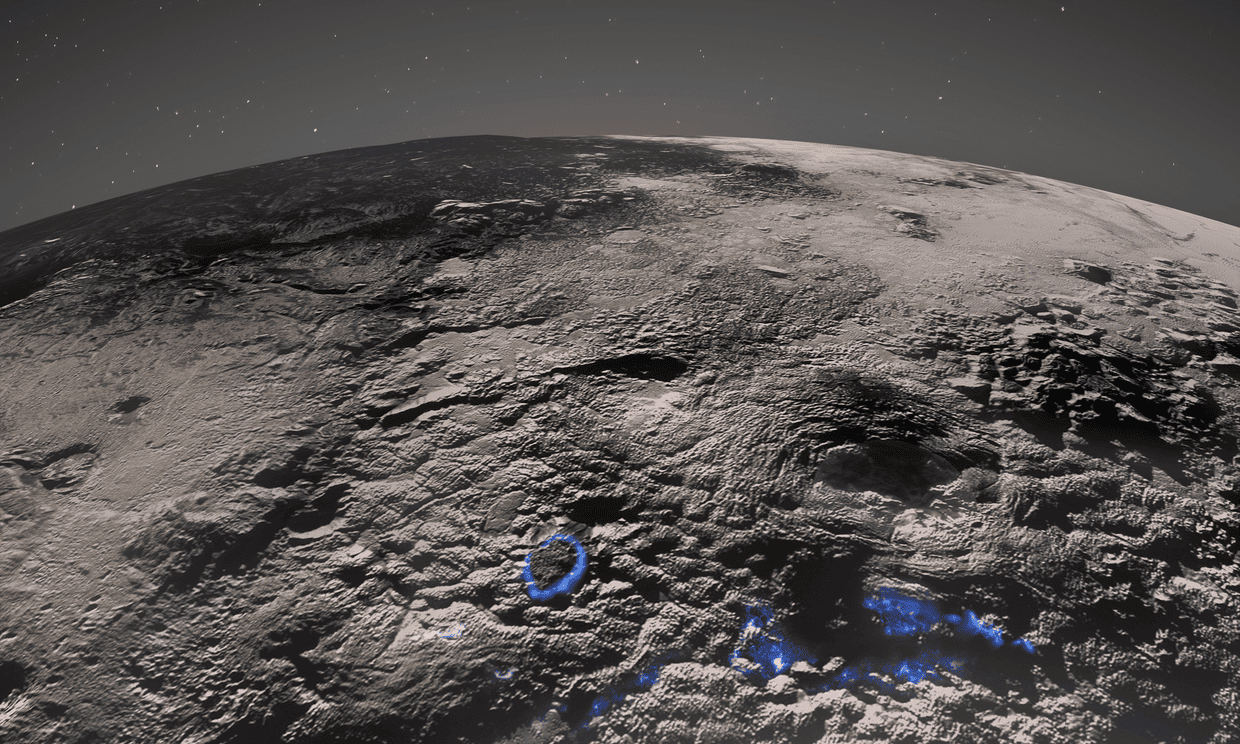
Existence of volcanoes makes idea that dwarf planet is inert ball of ice look increasingly improbable.
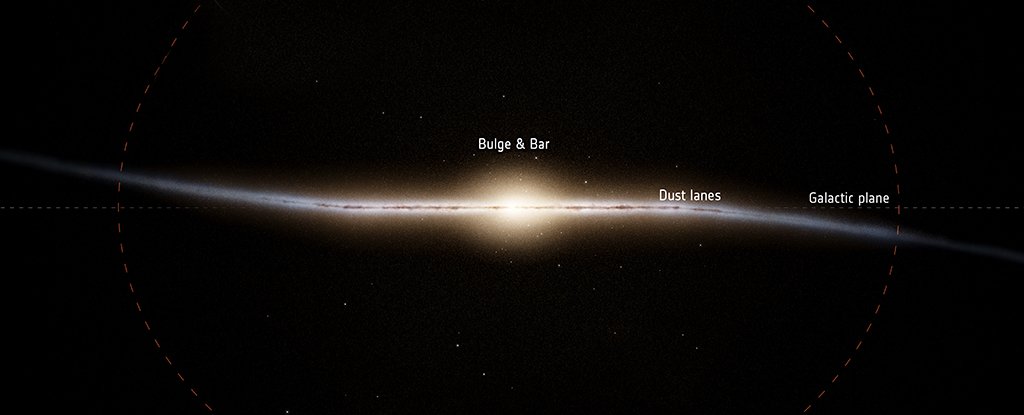
The Milky Way is older than astronomers thought, or part of it is. A newly-published study shows that part of the disk is two billion years older than we thought.

Scientists have detected a strange new type of high-frequency wave on the sun’s surface, and the waves are moving three times faster than scientists thought was possible.
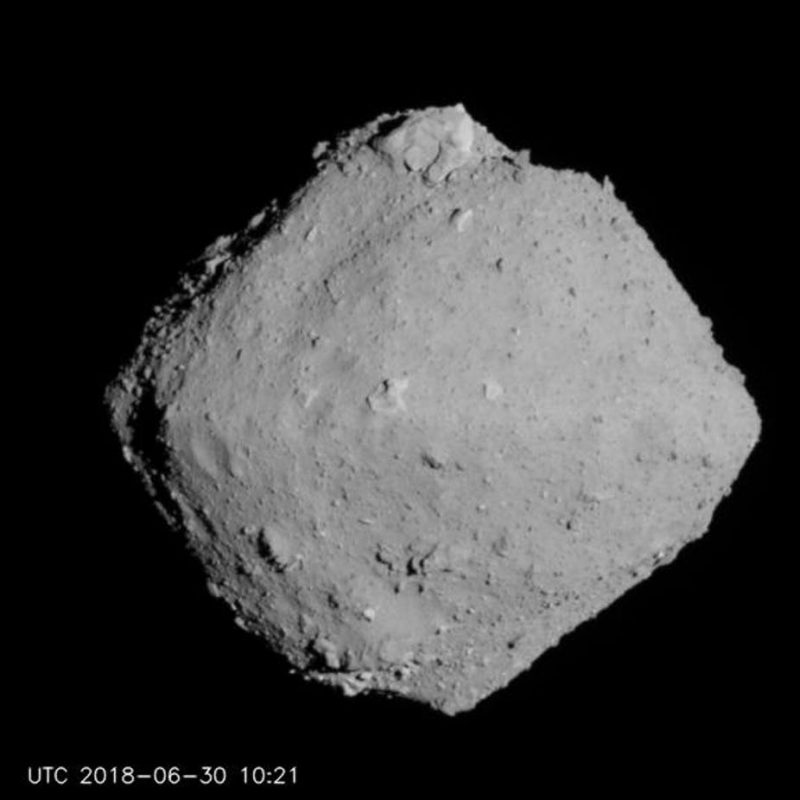
That’s according to researchers in Japan, who detailed their findings in two new papers presented at the 53rd annual Lunar and Planetary Science Conference in Texas, March 7 to 11, 2022.
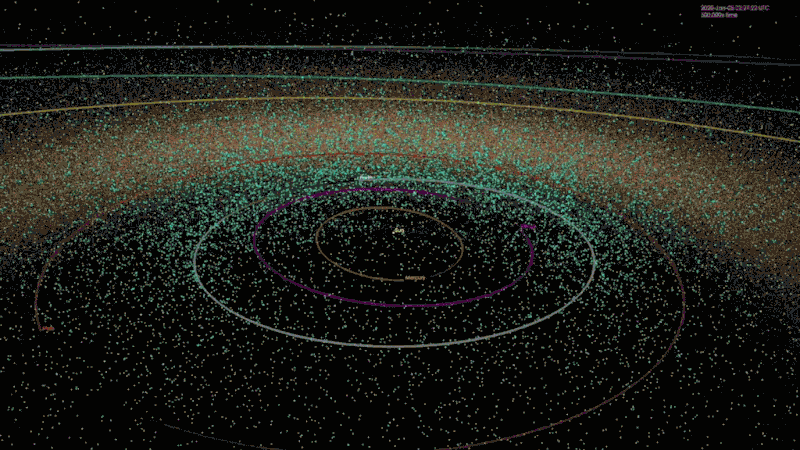
Overnight on March 24-25, 2022, another small asteroid raced toward Earth, unseen until hours before its closest approach.
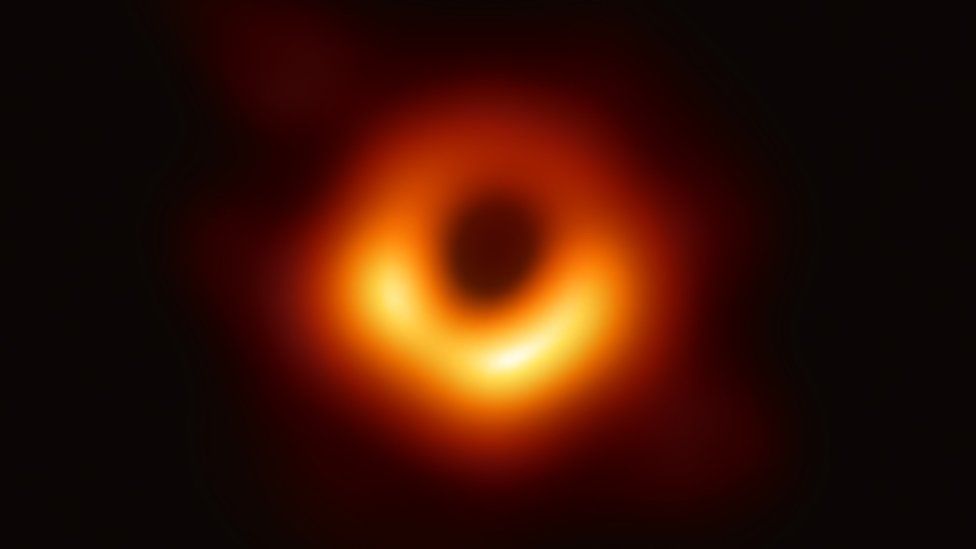
Scientists say they have solved one of the biggest paradoxes in science first identified by Prof Stephen Hawking.
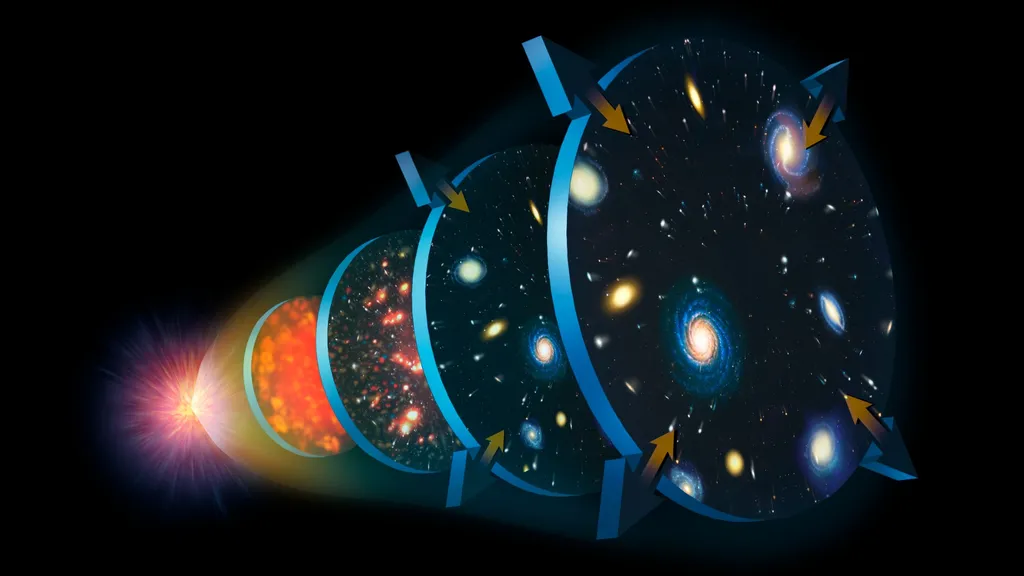
A wild new theory suggests there may be another “anti-universe,” running backward in time prior to the Big Bang.








